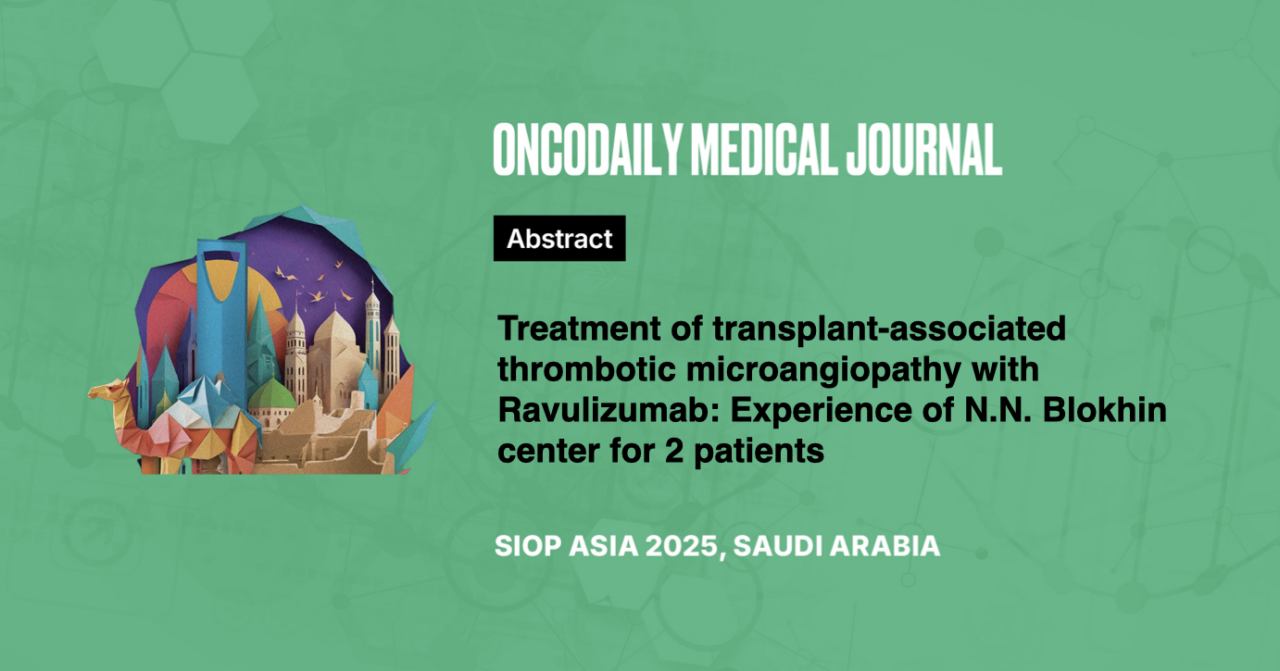Treatment of transplant-associated thrombotic microangiopathy with Ravulizumab: Experience of N.N. Blokhin center for 2 patients
Abstract
Introduction: Treatments of transplant-associated thrombotic microangiopathy (TA-TMA) in children after the allogeneic hematopoietic stem cell transplantation (aHSCT) still a challenging problem. New approaches required.
Methodology: This is a retrospective study analyzing the experience of ravulizumab treatment of refractory TA-TMA in children after aHSCT. We aimed to present the single center experience of safety, tolerability and efficacy of ravulizumab therapy for children with TA-TMA.
Results: We present 2 cases of patients with high-risk TA-TMA diagnosed with both laboratory test and clinical assessment. Patient 1: 17 y.o. girl with secondary AML (after Osteosarcoma). Patient 1 received 2 courses of chemotherapy with AML BFM-oriented protocol and aHSCT from matched unrelated donor (MUD), conditioning regimen includes treosulfan, melphalan and fludarabine. IST included ruxolitinib, ATG and abatacept. TA-TMA started at day 60 after aHSCT with elevated LDH levels, thrombocytopenia, proteinuria, high blood pressure and schistocytosis. Ravulizumab infused 3 times in standard (“adult”) dose with the effect. No signs of TA-TMA found in patients at day +200. Patient 1 is alive. Patient 2: 17 y.o. girk with Ph-pos.
ALL received aHSCT from MUD, conditioning regimen: TBI, fludarabine and etoposide. IST included tacrolimus, ATG and abatacept. At day +250 chronic graft-versus-host disease (cGvHD) diagnosed. GvHD were treated with multiple therapies including sirolimus, etanercept and belumosudil – cGvHD is under control now. TA-TMA was diagnosed at day +370 with elevated LDH levels, thrombocytopenia, proteinuria, high blood pressure and schistocytosis. Ravulizumab infused 2 times in standard (“adult”) dose with the effect.
Conclusion: Ravulizumab is a safe, well-tolerated and effective method of TA-TMA treatment in children after aHSCT. Future multicenter studies required.





